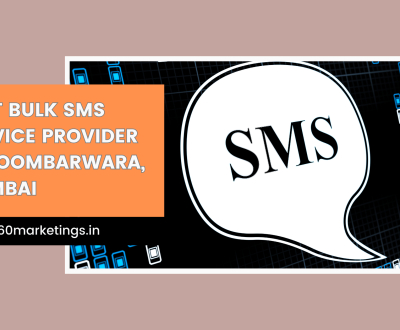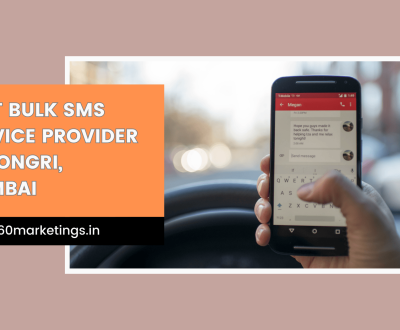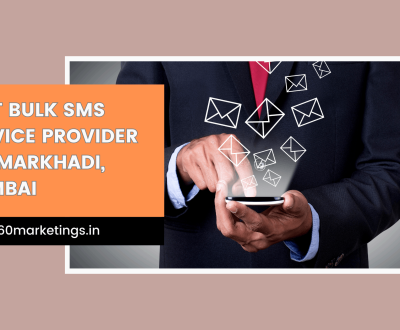Starting a digital marketing agency can be a rewarding venture, but it requires careful planning and execution. This guide will walk you through the essential steps to launch your agency successfully.

Understanding the Digital Marketing Landscape
Before diving into the specifics of starting your agency, it’s crucial to understand the digital marketing landscape. This includes knowing the various services you can offer, the tools and technologies you’ll need, and the potential challenges you may face.
Understanding Different Services
Digital marketing is a broad field, encompassing various services such as SEO, PPC, social media marketing, email marketing, and content creation. Each service requires specialized knowledge and skills, so it’s important to determine which ones you’ll focus on. Additionally, understanding the demand for these services in your target market will help you make informed decisions.
Staying Updated with Industry Trends
Moreover, the digital marketing industry is constantly evolving. New tools, algorithms, and strategies emerge regularly. Therefore, staying updated with the latest trends is essential for maintaining a competitive edge.
Defining Your Niche and Target Audience
One of the first steps in starting your digital marketing agency is defining your niche and target audience. Doing so will help you stand out in the crowded market and attract clients who are specifically looking for your expertise.
Choosing a Niche
Instead of trying to serve everyone, it’s better to focus on a specific niche. For instance, you could specialize in serving small businesses, e-commerce companies, or real estate firms. By doing so, you’ll be able to tailor your services and marketing efforts more effectively.
Identifying Your Target Audience
Once you’ve chosen your niche, it’s time to identify your target audience. Consider factors like their demographics, pain points, and goals. This information will guide your marketing strategies and help you connect with potential clients on a deeper level.
Building Your Brand and Online Presence
After defining your niche, the next step is to build your brand and online presence. This is where you create a strong identity for your agency that resonates with your target audience.
Creating a Memorable Brand Identity
Your brand identity includes your agency’s name, logo, tagline, and overall visual style. It should reflect your agency’s values and the unique value you bring to your clients. Furthermore, consistency in your branding across all platforms will help build trust and recognition.
Developing an Effective Website
Additionally, your website serves as the digital storefront for your agency. It should be professionally designed, easy to navigate, and optimized for search engines. Include case studies, testimonials, and a clear call to action to convert visitors into clients.
Setting Up Your Agency’s Operations
With your brand and online presence established, it’s time to set up the operational aspects of your digital marketing agency. This involves creating a solid business plan, organizing your finances, and putting the necessary tools and processes in place to run your agency efficiently.
Creating a Comprehensive Business Plan
A well-thought-out business plan is essential for guiding your agency’s growth and securing any necessary funding. Your business plan should include an executive summary, market analysis, a description of services, and a marketing and sales strategy. Additionally, don’t forget to include financial projections.
Choosing the Right Legal Structure
Next, decide on the legal structure of your agency. Will you operate as a sole proprietorship, partnership, limited liability company (LLC), or corporation? Each structure has its own legal and tax implications, so it’s essential to choose the one that best suits your needs.
Organizing Your Finances
Organize your agency’s finances by setting up a business bank account, tracking expenses, and managing cash flow. Consider using accounting software like QuickBooks or Xero to streamline your financial management. Additionally, determine your pricing model, whether it’s retainer-based, hourly, or project-based.
Investing in Essential Tools
Invest in the right tools and software to manage your agency’s operations efficiently. Some essential tools include project management software like Trello or Asana, CRM software like HubSpot, and SEO tools like SEMrush.
Acquiring Clients and Growing Your Agency
Acquiring clients is one of the most challenging aspects of starting a digital marketing agency. However, with the right approach and strategies, you can build a steady stream of clients and grow your agency over time.
Networking and Building Relationships
Networking is a powerful way to acquire clients. Attend industry events, join professional organizations, and connect with potential clients and partners. Building relationships with other business owners and professionals can lead to referrals and collaborations.
Leveraging Inbound Marketing
Inbound marketing involves creating valuable content that attracts potential clients to your agency. This can include blogging, creating downloadable resources, and producing video content. Additionally, make sure to optimize your content for search engines to increase visibility.
Outbound Marketing Tactics
Outbound marketing involves actively reaching out to potential clients through methods like cold emailing, cold calling, and direct mail. When done correctly, it can be an effective way to secure new business.
Forming Strategic Partnerships
Forming partnerships with other businesses can help you acquire clients and expand your service offerings. Collaborating with complementary businesses allows you to tap into their client base and provide a more comprehensive solution.
Conclusion
Starting a digital marketing agency is a rewarding journey that requires dedication, creativity, and a strategic approach. By understanding the digital marketing landscape, defining your niche, building a strong brand, setting up efficient operations, and acquiring clients, you can establish a successful agency that stands out in the competitive market.
Remember, the key to success is continuous learning and adaptation. As you grow your agency, focus on delivering value to your clients and building long-lasting relationships. We hope this guide has provided you with valuable insights and practical steps to start your digital marketing agency.
Rishikesh has been passionate about marketing and technology since his graduation. He holds a B.Tech degree in Computer Science and Technology and has mastered various programming languages and web development. As a Marketing and Assistant Tech Manager, he dedicates most of his time to digital marketing activities like SEO and SMO. Rishikesh also loves to write and often contributes blogs to 360 Marketing, sharing his latest insights and discoveries. In his free time, he enjoys capturing the beauty of the world with his camera, merging his love for technology with his creative pursuits.
About us and this blog
We are a digital marketing company with a focus on helping our customers achieve great results across several key areas.
Request a free quote
We offer professional SEO services that help websites increase their organic search score drastically in order to compete for the highest rankings even when it comes to highly competitive keywords.
Subscribe to our newsletter!
More from our blog
See all postsRecent Posts
- The Benefits of Using White Routes in SMS Marketing December 9, 2024
- Businesses Report Higher ROI with Bulk WhatsApp Messages November 19, 2024
- Best Bulk SMS Service Provider in Koombarwara, Mumbai September 4, 2024









